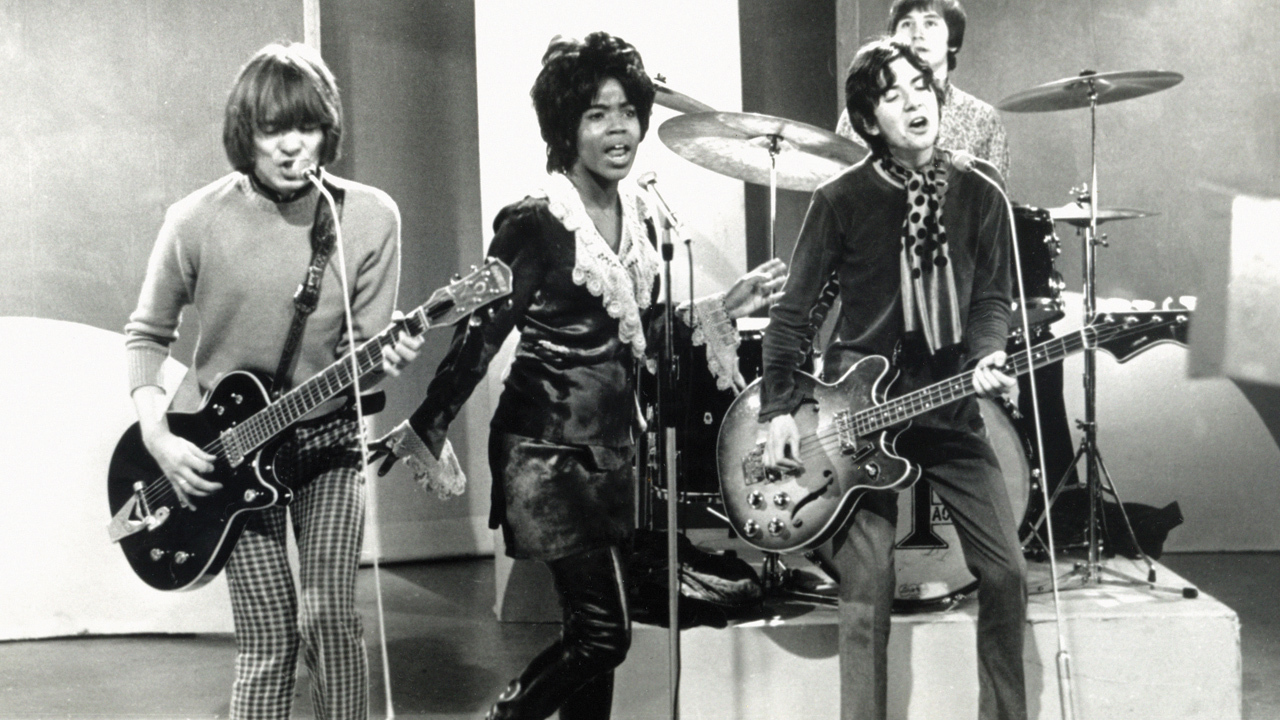The first lady of Immediate, PP Arnold was born and raised in Watts, Los Angeles, honing her craft in her local church before running away with the Ike And Tina Turner Revue as an Ikette in 1964. She sang backing vocals on the side of their River Deep Mountain High album produced by Ike Turner – “I didn’t get to go into the studio with Phil Spector, who produced the other side,” she tells The Blues from her home in Spain. “I only got to meet him when we did the TAMI show.” In 1966, the Revue supported The Rolling Stones in the UK; Arnold remained in London and started recording songs for Andrew Loog Oldham’s Immediate. Covers of Cat Stevens’ The First Cut Is The Deepest in 1967 and Chip Taylor’s Angel Of The Morning in 1968, plus the Steve Marriott and Ronnie Lane-penned If You Think You’re Groovy the same year yielded Top 30 hits and marked her out as an exceptional vocalist with the ability to touch the stoniest of hearts.
You’ve described joining The Ikettes as “a miracle”.
It gave me a way out of an abusive marriage. I went to the audition to help out a friend, we got the gig, four days later we were on the road and we never missed a step at that first show in Columbus, Ohio.
What was it about Ike and Tina that made you want to be a part of their Revue?
After the audition Tina said “come up and see the show”, and the moment they came out on stage they blew me away. Tina was amazing. She was a big influence on Mick Jagger, but I see a lot of Mick in her too.
Jagger played a pivotal role in your career, didn’t he?
We supported the Stones in England in 1966, our first show was at the Royal Albert Hall. Mick and I became close, we became lovers. He told me that Andrew Loog Oldham wanted to record me for his Immediate label, that’s how that came about.
You had a real affinity with your Immediate labelmates Small Faces.
Steve [Marriott] and I connected immediately. He was besotted with me, he was the first English boy to take me home to meet his mum. With the Small Faces we looked great together, we were the same height, same age, into the same music, wanted the same things, and at Immediate, it was like Motown, there was a family vibe. You helped each other out, sang on each others’ records, played the same bills, did the same TV shows. It was a lot of fun.
But not so much fun with Rod Stewart.
Mick had this idea of me and Rod being like an Otis Redding and Carla Thomas-styled duo and singing soul songs. We went into the studio to do Come On Home Baby. Mick was producing and Rod just made it really difficult for everyone. He kept changing the key of the song. In the end Mick lost his patience and we got the song down. Rod and I were having a little thing at the time, but that put an end to that and we’ve not spoken to each other since.
When you sang The First Cut Is The Deepest what went through your mind?
It was my song, my story, the pain and emotion was all in it and I laid it out bare for all to hear.
You started out in the church didn’t you?
Yes, the Full Gospel Missionary Baptist Church in Watts. My grandmother and her sister started that church, it began in my aunt Catherine’s living room. My family started migrating from Texas to LA to get away from the racism, so as the different parts of the family arrived, they would head to my grandmother and aunt. They were our spiritual leaders, we would gather on Sundays and have service. We sang the old hymns and the call and answer.
Alongside the church, who else influenced you?
There was Aretha Franklin and Dionne Warwick and Mavis Staples. I’d think of Dionne when I was singing my pop ballads, then when I was singing harder soul stuff, it was Aretha, and Tina too, of course.
What was it like writing Though It Hurts Me Badly?
That is a very important song, that song is about racism, about my and Mick Jagger’s interracial relationship which just couldn’t have happened in the States; I was riding around in limos with white boys in the UK. In the States the only time you saw a black woman with a group of white men was if they’d kidnapped her.
You’re heading out on tour early next year.
I really can’t wait. My backing band are the Small Fakers, the Small Faces tribute band, and initially I was unsure whether to hook up with them. But they do the Small Faces proud. Our set is tailored around my 60s material and Small Faces songs.
And you’re writing your autobiography.
I started it in 1994 and then it got derailed. I lost the book and had to start again. I go back and look at my ancestry, where I came from, where soul, R&B and blues came from.
Will there be new music?
I’m working with Ocean Colour Scene’s Steve Cradock, he just sent me five songs. Also songs I recorded with Barry Gibb in the 60s and Eric Clapton in the 70s are hopefully finally going to be issued.
